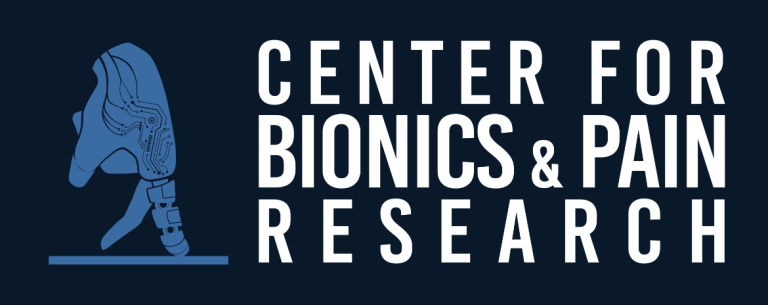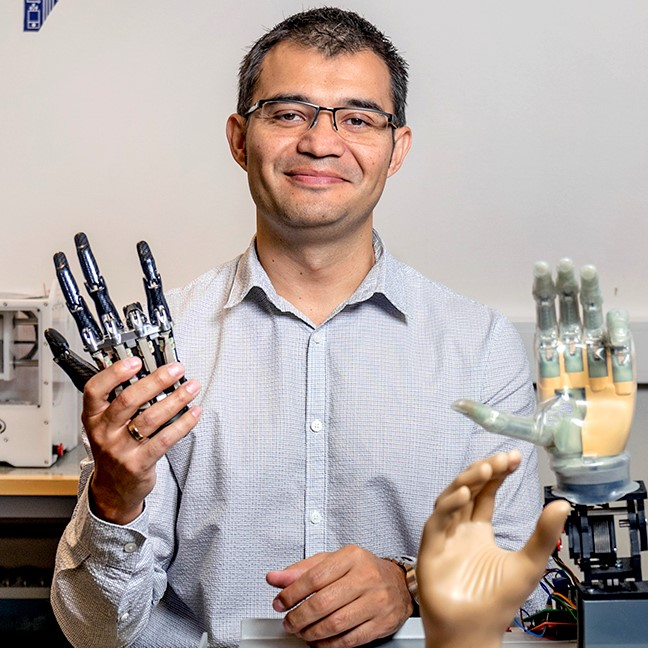
Two Swedish agencies have closed their investigations into a high-profile research center at Chalmers University of Technology that was suspended last year for “shortcomings in the operations.”
The Center for Bionics and Pain Research (CBPR), known for its work on restoring limb function, was scrutinized and ultimately shut down after a university investigation last April found scientists at the center conducted research without sufficient permits, had inadequate quality assurance processes and handled sensitive personal data poorly, and found “shortcomings” in legal agreements for the center’s operations.
Now, subsequent investigations by the country’s Medical Products Agency, which regulates medical devices and clinical trials, and the Ethics Review Appeal Board have ended, with both agencies declining to pursue further action.
“[Chalmers] found no punctual evidence of misdoing, but only what they conveniently thought could be wrong, but not factually wrong,” Max Ortiz-Catalán, the founder and former director of CBPR, wrote to Retraction Watch. “No research was conducted purposely wrong.”
Ortiz-Catalán left the center in 2023 amid what a university representative described as “issues in his leadership.” In his email, he also criticized the university for failing to consult the researchers involved or provide an opportunity to respond during its internal review.
But Chalmers’ senior leadership has “full confidence” in the work of the ethics committee that ran the review, and contends that the committee spoke to “a number of the researchers involved,” according to Anders Palmqvist, Chalmers’ vice president of research and sustainable development.
Chalmers declined to comment on the Swedish agencies’ decisions and has closed its own investigation into CBPR.
Chalmers’ initial review into the center examined 50 publications linked to Ortiz-Catalán, finding 30 ethical approvals. But the university had noted it was “generally a problem” to link the approvals to individual studies because the publications did not cite registration numbers.
Whether the papers had appropriate ethical approval was the main focus of the subsequent investigation by the Swedish Ethics Review Appeal Board. The board brought in Kjell Asplund, a professor emeritus of medicine and a former scientific secretary of the body, to evaluate 15 publications Chalmers had reported as suspect, but in his view, hadn’t been “really scrutinized” until then, he told us in an email.
Of the nine studies that fell under Sweden’s Ethics Review Act – which requires prior approval for research that may physically or mentally affect human subjects – eight had obtained the necessary approval. But according to Asplund, the documentation of that approval was either “absent or very confusing.” In some cases, incorrect registration numbers were cited. “It seems likely that this contributed to the suspicion of fraud,” he said.
Ortiz-Catalán said he and his colleagues published about 60 peer-reviewed articles with many ethical approvals involved. “It’s not surprising that such an amount of work can be confusing for an external person,” he told us.
Asplund identified one “questionable” study for which no ethics approval had been obtained. Whether this was a violation of the ethics act would depend on whether the non-invasive device used in the research was intended to physically or mentally affect the participants. “I left that to the law experts,” he said.
The Ethics Review Appeal Board ultimately concluded none of the studies in question violated ethics law. “Either the studies had ethical review approval, or such approval was not required,” the chairman, Anita Linder, told us in an email. Linder continued:
It should be noted that the Appeals Board only dealt with the issue of potential violations of the Ethical Review Act. Whether the research at the Centre violates other legislation or if there have been deviations from good research practices is not within the Appeals Board’s mandate to investigate.
Chalmers’ initial review had also located only one regulatory permit from the Swedish Medical Products Agency since CBPR was established, dated June 20, 2023. The review noted that Ortiz-Catalán and his colleagues had presented research results related to the device in question at a conference in Colombia on June 4-8, 2023 — suggesting a clinical trial had taken place ahead of the necessary approvals for the medical device.
This became the subject of two separate investigations by the Swedish Medical Products Agency. In a decision last August, the agency found that the clinical trial had not yet begun, and the investigator in question – Ortiz-Catalán – had since left the institution. With no evidence that the trial had begun before approval, the agency chose not to investigate further.
After that decision was made public, the agency then received more reports suggesting other potentially unauthorized clinical trials had taken place at CBPR. In a second review, the agency took a closer look at the conference presentation, ultimately finding that those results “appeared to be from another study.”
The Medical Products Agency also identified another six studies with ethical approval that had not been reported to the Medical Products Agency — despite their likely needing such review before commencing. Whether those studies had begun, or were ever completed, remained unclear, the Medical Products Agency stated.
The Medical Products Agency ultimately wrote off the case, citing the fact CBPR had ceased operations and no new studies were under way. Representatives from the agency have not responded to requests for comment on the decision. This month, drug inspector Daniel Bjermo told a local Swedish paper the agency “was not justified to investigate the matter further as the desired effect had already been achieved.”
When asked whether he felt the Medical Products Agency’s finding was a full vindication, Ortiz-Catalán told us:
Again, no evidence has been ever presented that there were any violations to the law regarding medical devices. However, Chalmers and the media ran a story of systematic wrongdoing judging us before anything was proven, and not a single case was actually proven. The damage is done and those who caused it, including the media, know what they did. I need no vindication. Hundreds of people have benefited from my work… and that’s what matters to me and what I continue doing.
When we reported on this story last year, Ortiz-Catalán was working at a bionics institute in Australia. Now, he says he is doing humanitarian work in Ukraine and continues to be “engaged in research projects around the world.”
He specifically took issue with our coverage last year because we reported on Chalmers’ findings, which he says have not been substantiated by external agencies. He said our article caused harm to his students and staff at CBPR. “Please consider the evidence instead of unsubstantiated rumors,” he wrote.
When asked, he did not explicitly deny there was any wrongdoing at the center, but said no research was conducted “purposely wrong” and that “no other academic research group in Sweden had done more to maintain compliance with the law” for medical devices.
“Not a single case was proven so neither by Chalmers nor the national agencies who assessed the matter,” he said. “If violations have been happening systematically, there should be tons of evidence, right?”
The original investigation had also found that the center had no person in charge of compliance, and that personal data had been handled poorly. These points do not seem to have been addressed by either Swedish agency, and Ortiz-Catalán continues to maintain there’s “no evidence” for these points.
Regarding the finding of shortcomings in legal agreements, “what are the ethical or legal violations here exactly?” he asked. “More importantly, how does this relate to scientific misconduct? These are all empty and at best inconsequential allegations.”
Palmqvist, Chalmers’ VP of research, told Retraction Watch the relevant agencies “have made their decisions,” and the university would not be reviewing or commenting on the decisions. Chalmers has closed its own investigation into CBPR and does not anticipate any further decisions from external authorities, he said.
Like Retraction Watch? You can make a tax-deductible contribution to support our work, follow us on X or Bluesky, like us on Facebook, follow us on LinkedIn, add us to your RSS reader, or subscribe to our daily digest. If you find a retraction that’s not in our database, you can let us know here. For comments or feedback, email us at [email protected].
